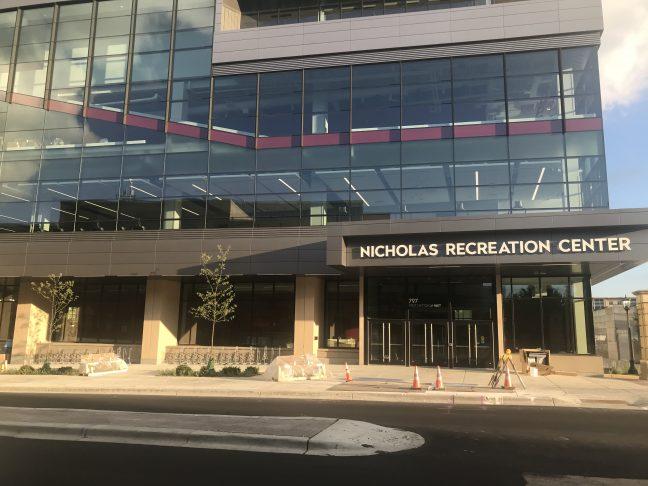At Tuesday’s ASM student council meeting, the council discussed accusations of Recreation and Wellbeing and the Dean of Students office lobbying student government leaders. They also introduced legislation stating the council does not approve of the Wisconsin Union and RecWell FY22 budgets, which the Student Services Finance Committee previously debated.
Chair Matthew Mitnick and Rep. Sam Jorudd presented their case on why they believe Dean of Students Christina Olstad and Director of Recreation & Wellbeing Aaron Hobson have been lobbying student leaders for the use of ASM reserve funds. Memorandum states Hobson and Olstad attempted to persuade members of the ASM Reserve Board on how they should allocate the $1.5 million the board is currently in control of.
“In the instance documented in the memo, [Hobson and Olstad] both acted in the capacity of unregistered lobbyists because while being employed by this university … they communicated with student leaders on behalf of the institution to advance a specific request,” Mitnick said.
ASM did not vote on this topic at all. Mitnick said the purpose of bringing it up at the meeting was to discuss the occurrence with the body and make students and ASM members aware.
UW spokesperson Meredith McGlone denied that anyone in the university was lobbying ASM members in an email to The Badger Herald.
“University administrators continue to follow all applicable laws and policies as they work to support students’ wellbeing and access to services during the pandemic,” McGlone said. “Any suggestion otherwise is false — it also detracts from meaningful action to help students.”
Later in the meeting, the student council also introduced legislation members of the BIPOC Coalition co-sponsored that called on the Wisconsin Unions and RecWell to find other sources of funding for their budgets that did not include the requested increase in student segregated fees.
SSFC approved the Union’s budget, which will result in an increase in segregated fees for students, at their Feb. 18 meeting. SSFC did not approve RecWell’s budget Monday, which also asked for a segregated fees increase and instead directed them to the Reserve Board for the funding they need.
Both budgets are non-allocable, meaning ASM and SSFC does not approve the final amount for either budget and instead can only make recommendations to the chancellor on how they believe the funding should be distributed.
ASM’s vote on this legislation would not overrule any decisions made by SSFC at previous meetings, but would signal ASM’s stance on the budgets, Jorudd said.
Rep. Jack Phillips said many students cannot afford segregated fee increases, especially during the pandemic.
“Not everyone has the same opportunity to pay their seg fees and whether or not they take advantage of those services we still have to pay, in my case an additional two months rent, each year,” Phillips said.
ASM did not hold a vote on this piece of legislation Tuesday and instead will vote on it during their March 9 meeting.
During the meeting, the council endorsed statements from the Filipinx-American Student Organization and QLaw.
FASO published a statement, which ASM unanimously endorsed, condemning recent violence and racism towards Asian Pacific Islander Desi Americans that increased at the start of the pandemic.
The statement from QLaw was endorsed with a vote of 22-0-2. QLaw and other student organizations have spoken out against the inclusion of the anti-trans organization, Women’s Liberation Front, at UW Law School employment recruiter events and asked the school to bar them from participating.
ASM also voted to leave the placeholder in their budget blank for the Crisis Assistance Helping Out on the Streets initiative passed in a previous meeting. The council will ask the next session to pick up working on this initiative and fill the placeholder, as more time is needed to work with the city and the university on the program, Mitnick said.
ASM will meet again March 9 over Zoom at 7 p.m.


